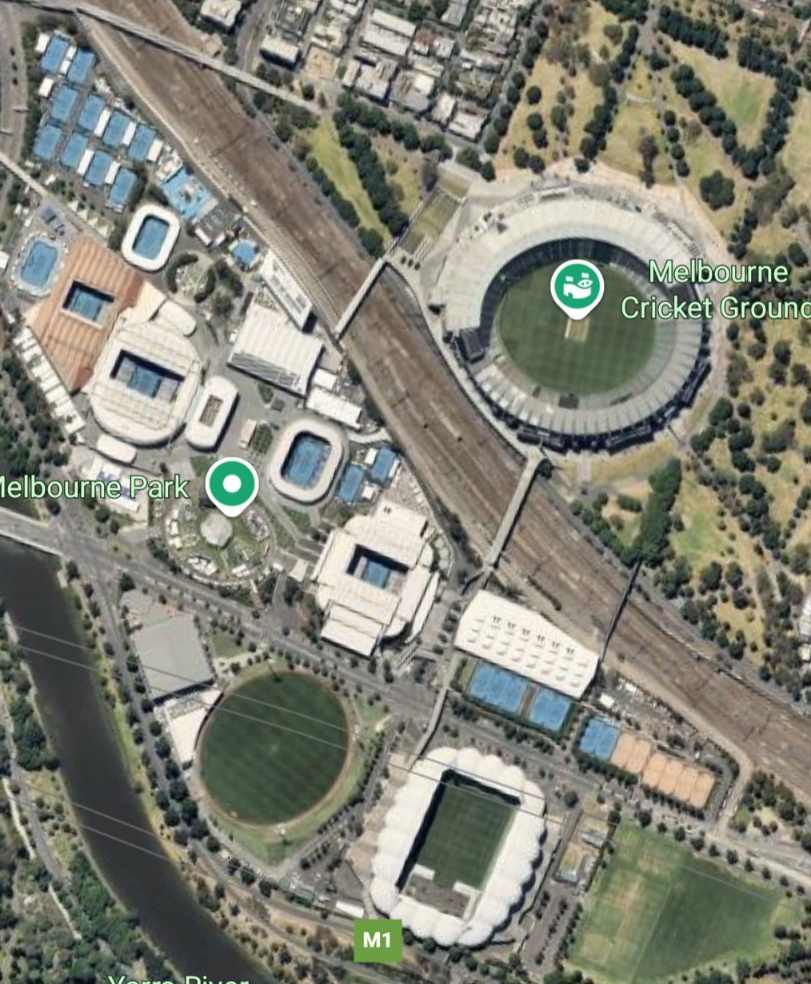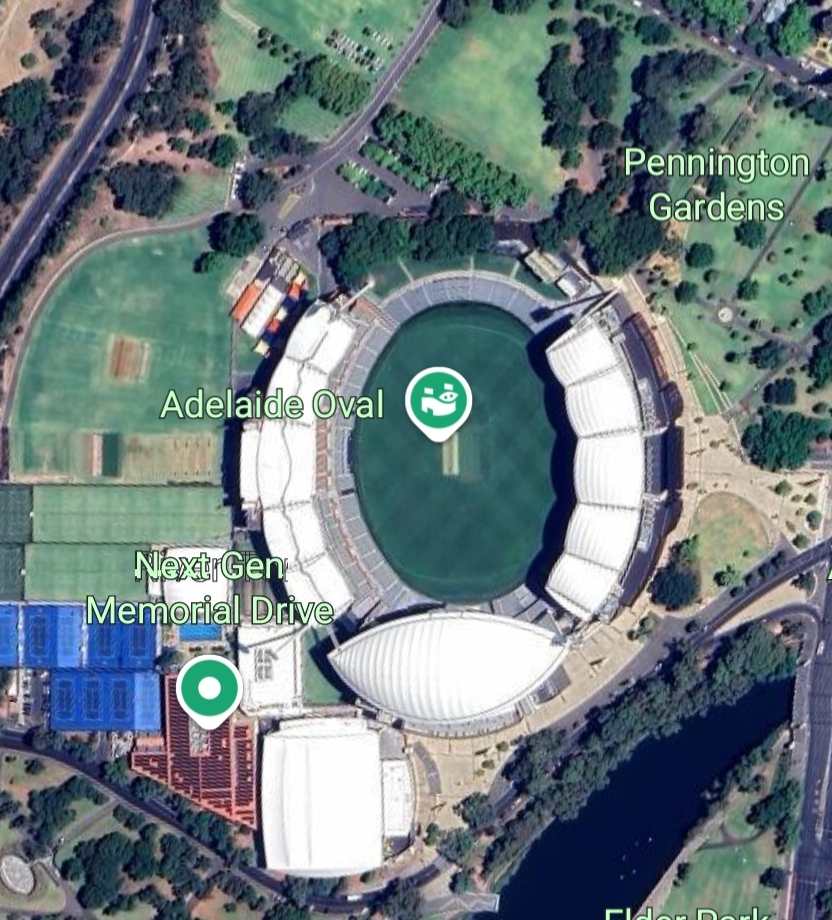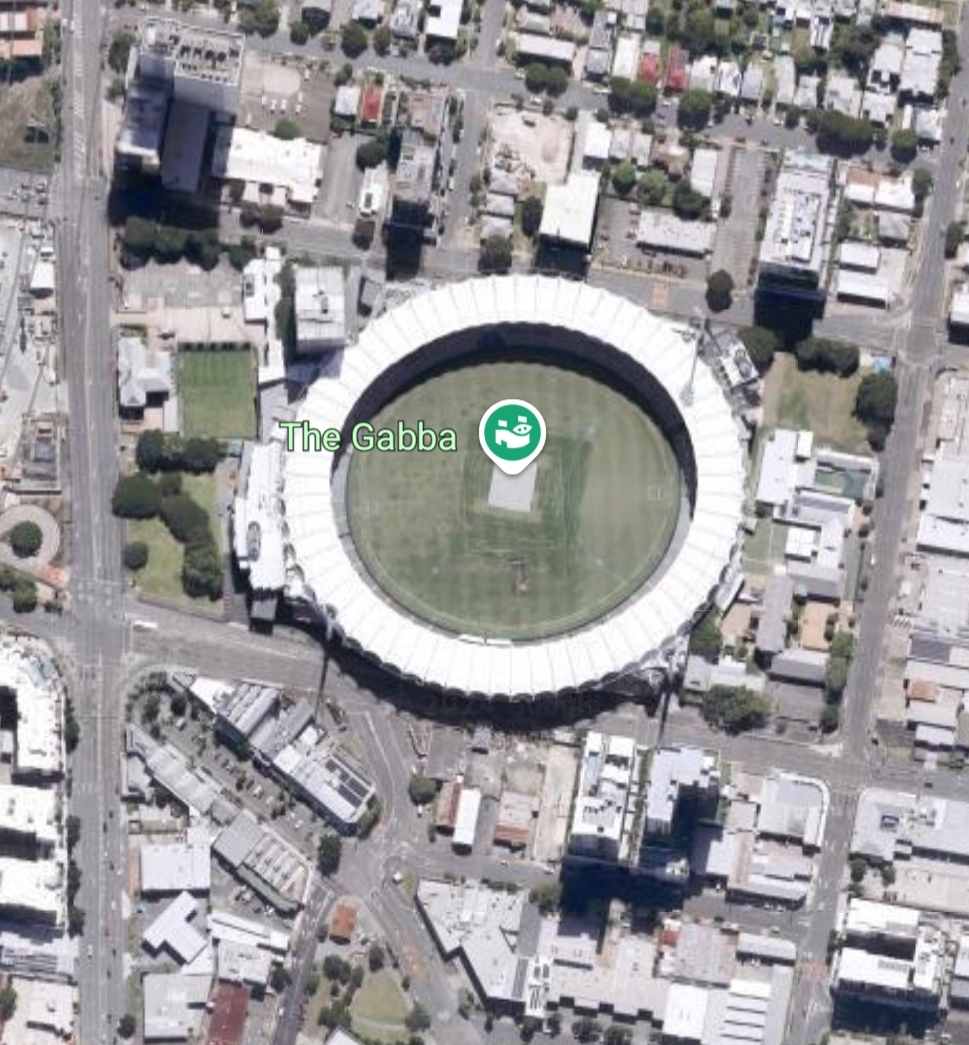I don’t know how you could train people to get out of their cars. The whole situation is bus-ted. Perhaps there’s subway to do it, but I’m at a loss as to how.
We need some action from the bike-ameral legal system. Currently, supporters of public transit are underground, but they need to expose car-centric planning as the utter tram it is.
Many people have their choices made for them because there are no practical alternatives.
Yup. Shit, one time I DID take the train up to the city to see a concert. Bit me in the ass hard when I got back to the train station JUST in time to see the last train of the night literally pulling away before my eyes. That was an expensive Uber…
And that’s when you have a train at all. My state has two professional football teams and no internal commuter rail
I just came up with a thought the other day! This would be a decades long approach and I have no idea if it would work. The idea is for generic American cities, that have a few sky scrapers in a downtown and then the burbs.
Start with 3-5 square blocks in the heart of downtown and close the roads. Make them permanently pedestrian only. These roads are typically very wide, so allow food trucks/vendors to occupy a portion of the center. Add bike lanes, and add really good reliable public transit around this area. Let that marinate for a few years, then add another chunk of the same size.
I think you would see this portion of the city become a very popular residential area. Businesses will figure out how to provide amenities where people gather. By starting small you are not requireing people to get rid of their cars, just not use them in certain areas. As this expands you will have a larger and larger portion of the population that finds it inconvenient and expensive to own a car once their needs are met in this ever expanding bubble.
I doubt you could ever get this done, but it’s an idea!
This sounds incredibly similar to Barcelona’s superblocks. Definitely do-able if you get city government on board, there is a proven roadmap to follow.
Step 1: make transit usable.
We’ll re-examine America after that.
You don’t even need to ban cars, just add traffic calming that makes the route less convenient for people driving through it. My town did this with a section of a street that went through medium density housing. They changed it from a three-lane one-way street to a two-lane, two-way road with two bike lanes and replaced the stop lights with roundabouts.
Now driving through there takes twice as long as before, which motivates drivers to avoid the area. Since it’s now just the people who live in the area there’s a lot less car traffic. And it’s reasonably close to downtown with plenty of stuff within walking distance.
I just came up with a thought the other day! This would be a decades long approach and I have no idea if it would work. The idea is for generic American cities, that have a few sky scrapers in a downtown and then the burbs.
I should add:
- transit costs are expensive. Build them in at the start
- look at the “15-min city” concept.
- look at “mixed-use (high-density) residential”
I live in an area of mixed-use high-density and it’s done really well: I use the train for everything thats not immediately close-by, all my daily stuff is within a block or two, I’ve rarely driven in 5 years, and while I know the 30-storey buildings above the shops are 97% occupied, I really don’t notice the neighbours.
It’s segregated, rez and biz, but I showed my neighbor how to cope. Now her commute with her kids to daycare is 1 elevator, switch at P4 to the other elevator stack because they both come out in the same room, go back up to the daycare at G to drop the kids off, and walk out to the mètro. Her kids’ commutes are dry, warm and safe, and they’re safely away before she leaves the building.
You loosely described Melbourne. But instead of food trucks it’s trams.
Imagine having a giant, concrete skillet heating up your city at all hours or the day.
now imagine absolutely obliterating it with solar panels, so many that you not only have cheap electricity for your city, but you can even sell it to nearby cities too for a profit
There’s a Dodger Stadium Express shuttle you can take from nearby Union Station.
There’s also an ongoing effort to build an aerial gondola between the station and the stadium, but as usual the NIMBYs would rather more people just drive.
The best solution, of course, is to close down the stadium entirely because I don’t like baseball.
My city bought out some succesful busniesses downtown to demolish their buildings and build a new stadium with surface level parking for all the people who live outside of the city to drive to. Can we at least get a parking garage instead of surface level so we dont have to demolish businesses and homes for the benefits of suburban and rural sports fans?
Unfortunately the reality often is that it’s cheaper to buy more land and demolish buildings that get in the way than it is to build tall to solve for that. And that prestige project has to be cheap so that it can get out the door in this local politicians election cycle. Now if people could be held accountable for really bad choices they made a long time ago…
Perth stadium has entered the chatjust don’t have parking

Yep - that’s something we tend to do well:
Melbourne Cricket ground (100,000 capacity)

Adelaide oval (53,000 capacity)

Brisbane Gabba (42,000 capacity)

Sydney Olympic stadium (83,000 capacity) (there are some carparks just out of view, but not many)

Yup. Run a metro line to it. Run 100 busses when there is a match. Don’t take up so much space for something that’s not in use for 95% of the time.
And make public transport free with your ticket. Works wonders here (Brisbane)!
They have near constant bus service on game night from the hub a couple of suburbs over - catch a bus to the hub and then straight on to the stadium.
Or bus / drive to the train station and train in - whatever your want.A town next to us has free transport and it doesn’t pan out great unless you have plenty of income from other places. They ended up with older busses, fewer lines and not much increase of people using it. A cheap, sustainable ticket will always be better for longevity than a free one, especially when the government changes and other things become a priority
MCG was the first stadium I thought of. Fantastic planning.
I know right? But that makes sense to do and most places have politicians that want their prestige projects where it suits them and those usually don’t make too much sense. Besides that good public transport solutions are boring. That huge parking space looks way more impressive from above…
If cost is the concern, why did it get placed downtown where land is expensive? The stadium could have been built on the outskirts where land is cheaper and they can build as much parking as they want.
We should also be factoring in the long term impacts. Over the course of 20 years is it better to have a sea of parking around the stadium or a parking garage which leaves space for local restaurants, shops and merch stores to open right next to the stadium?
or a parking garage
The thing missing from so many basements is 6 levels of parking.
Guess what we need on every roof. If you guessed 30 storeys of 1000-1200sqft rentals, you’d be right!
We should do that. But politicians that are out of office in a couple of years really don’t care because by then it won’t be their problem to solve. Solving actual problems is boring but the flashy project that was totally unnecessary will be remembered. For better or worse.
They are supposed to serve us and provide to society, not protect their egos and their legacy.
Why is the stadium going through carcenization? 🦀
It was inevitable
Maybe it’s in Maryland
Maybe it was born with it.
While I appreciate the joke this POS is dodger stadium in LA
Of course there is, London has multiple massive stadiums that do not require this sort of parking.
Australia has this too and we don’t have as good public transport as you. You can’t even drop off nearby. Basically, everyone is on buses to car parks away (schools and other places are used) or train stations. It’s a pain in the butt, but a way of life if you want to watch a game. Tickets at these stadiums include free public transport for the afternoon, so it’s included in the price.
Why don’t stadiums have their parking in large parking garages? The traffic for exiting the stadium already sucks as it is, why not a multiple entrance/exit garage system?
Why do you ask this as if it’s not a thing?
Look up Santiago Bernabéu or Camp Nou, two of the largest stadiums in Europe, and you find no over ground parking lots. Same applies to most stadiums, with many actually being very well articulated with mass transit, to the point that it’s much quicker to just take the subway/train/bus on match day than to be stuck in traffic for hours.
Sorry, for the pedants out there, ‘why don’t all stadiums have parking garage systems instead of flat parking lots?’
If land is cheaper than construction costs, then they build a parking lot. If construction costs are cheaper than land, they build a parkade
Are you factoring in the opportunity cost of the wasted (poor optimized) space? Of all the extra fuel people have to burn to get around said wasted space? What about the long term environmental impacts? What is the value of a person’s life (time) and what value do we put on the time that is taken from us because of wasteful sprawl?
Wasting land is only cheaper because the real costs get put on the rest of society and future generations.
It doesn’t matter if I am; they aren’t. MBAs can’t see past the next fiscal quarter.
If the stadium is anywhere near an urban setting only bad design warrants the building of (massive) car parks - and everybody using cars to get there. Shopping centres warrant large car parks because people load up with items. Sports grounds need to get people in and out in tight windows - there’s no contest in car v rail in this respect.
Every IKEA I can think of has the garage in the building and they have many spots as well as people loading large items, so it’s possible. For normal shopping centers I think it’s also mostly indoor/underground stuff (Europe).
Yeah - between you and me - the real reason is like the castles, fortresses, monasteries and cathedrals of the past a stadium is built as a statement building. Uniquely identifiable as the cultural home of that tribe. I don’t think there’s ever been a trainee architect who wants to design parking garages when they grow up. Some stadiums are a triumph of form over function. Also the large empty surrounding flat areas enforce the impact of the architectural qualities by removing any outside context or reference… but you didn’t hear any of that from me.
I know this is only one example but the Tampa Bay Lighting have a parking garage right across from the main entrance and use the wall facing the entrance as a viewing screen so even if you cant/don’t get tickets you can still warch along out front and hear the roar of the stadium. There’s a bar and everything out there
I’m genuinely quite impressed with that whole idea… good on them. Thanks for letting me know.
Money. Costs more to build and costs more to maintain. I assume at the time many of them were built the land was cheap enough to not come close to offsetting it.
For the pendants out there - they all do
Just not in one country
You’re the exception, not the norm
Please note this is a satirical comment, and it’s not my fault you have poor reading comprehension
I mean /s
Parking garages costs a lot more than surface parking. And the amount of traffic which can leave is limited by the surrounding roads, not by the exits.
Edit: I’m not saying this is a good thing. I’m saying it’s the reasoning of the people who build stadiums.
Are you factoring in the opportunity cost of the wasted (poor optimized) space? Of all the extra fuel people have to burn to get around said wasted space? What about the long term environmental impacts?
Wasting land is only cheaper because the real costs get put on the rest of society and future generations.
Are you factoring in the opportunity cost of the wasted (poor optimized) space? Of all the extra fuel people have to burn to get around said wasted space? What about the long term environmental impacts?
No, and neither are the people building/paying for the stadium
This is a big reason why many US city budgets are fucked. So much prime taxable real estate given over to parking lots that don’t generate anywhere nearly as much money for the public, but the market doesn’t care about that particular externality.
I agree 100%. Public transport is the only sensible approach to getting people to stadiums. If it were my choice I wouldn’t provide parking at the venue at all.
This one is actully much worse then it might appear at first glance. The housing “near” the stadium is mostly mid density. Also there is a light rail line running half a mile away from the stadium, but due to a bit of cliffs and any sort of attempt to do it, you need to walk nearly two miles to the station, due to a lack of proper pedestrian paths.
So this would be easy to fix and btw there is a park next to it. a few pedestrian bridges and wideing some sidewalks.
If it were just to watch a game, many might have taken a form of transit system to get there.
That said, I hear Americans have a tradition of a tail gate party(and at the far right of the picture that might be the case here) so in that particular country it’s probably not likely any of them took transit.
This photo though, it’s Dodger Stadium, tailgating is not allowed.
Do Europeans just bring their bbq smokers on the train with them?
No. Just cans of beer. Lots of cans of beer.
If that’s dodger stadium, https://en.m.wikipedia.org/wiki/Battle_of_Chavez_Ravine
Ry Cooder has a really cool album about it too (this song is about the megalomaniac racist mayor at the time): https://www.youtube.com/watch?v=QzhkLG6vRlw
“Cement mixer’s spreading the word around: this here is my town”
And so the idea of coffin/bathtub sized homes was born.
Maybe in america
RMtransit did just do a video on getting people to and from stations using vehicles that aren’t cars!
One of the nicest things about the Houston Reliant Center is that there are two different rail stops along its edge.
If the city wasn’t run by people who viscerally hate mass transit, I could see a city in which the stadium complex housed a full sized Union Square style mass transit hub. But the fact that we built rail to our 120,000 seat stadium complex at all is something of a miracle. One of only two rail lines in the entire city, and its the third most heavily used transit corridor in the country.
I am tired of anti-car people pretending that removing cars from roads isn’t going to replace the empty space with shipping trucks. America is not Europe, it’s not a robust welfare state.
The other side of this is the fact that many people don’t want to use public transport. I’ve used excellent public transport in the EU, I still hate other people and don’t want to travel with them.
That’s why anti-car people also advocate for better urban planning that still include cars but don’t make them the only viable option. And why can’t it be? America has the money.
The other side of this is the fact that many people do want to use public transport. I’ve driven in some excellent cars, I hate other drivers and don’t want to drive with them and I hate how ugly my city/ suburb is due to needing to have wide roads everywhere.
The other side of this is the fact that many people do want to use public transport. I’ve driven in some excellent cars, I hate other drivers and don’t want to drive with them and I hate how ugly my city/ suburb is due to needing to have wide roads everywhere
Great, just please don’t force your preferences on someone else.
Mah dude, car people has been and always will be forcing their preferences on everyone. That’s the reason why a shit tons of place is so car dependent. This isn’t forcing preferences, this is regaining control.
Why would less cars mean more shipping trucks? I don’t understand what you’re trying to say here.
Is this your first day under capitalism?
Maybe it is, care to explain?
Companies which rely on transporting products between different locations (like Amazon, UPS etc) will make use of emptier roads to transport more goods. More empty roads = more opportunities for operational efficiency for transportation companies
Edit which isn’t a bad thing per se, companies should get to be more efficient, but not at the expense of tax payers who don’t want to subject themselves to public transport
I think this is easily solved with increased fees on trucking, which is something we should be doing anyway since heavy vehicles are responsible for almost all of the wear and tear in the roads. Right now they don’t pay their fair share of the damage they cause.
Maybe but such companies are also very good at lobbying so it’s not “easily fixable”
True. Politically this would be tough but if we’re restricting private automobiles we’re already in magical Christmasland to some extent.




















